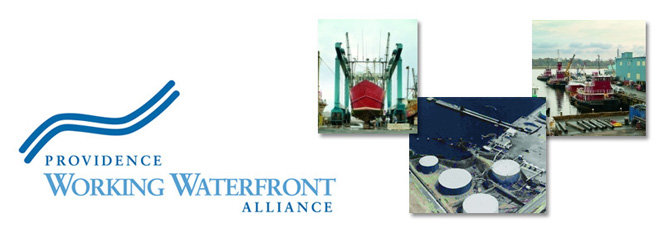This week’s Providence Business News features an article about the “National Strategy for the Marine Transportation System,” a new study released by the U.S. Committee on the Maritime Transportation System. The report outlines the tremendous projected growth in international shipping volumes and the need to invest in our nation’s marine transportation infrastructure.
As the PBN’s article details, Rhode Island could benefit from investing in our ports, but a more coordinated policy is needed.
Standing out near the end of the dock at Promet Marine Services on a recent late summer day, Vice President Joel H. Cohen pointed to a semi-abandoned property sitting a few hundred yards south. The privately owned site includes two brick buildings on 6.5 acres that’s mostly vacant, Cohen said.
It could become a prime spot to draw economic development in Rhode Island, he said. With an investment of about $30 million, a new pier and industrial business could be added, he said. Such an investment would require municipal support, he said.
“Anything on the waterfront requires a partnership with the federal government, but it [also] requires direction on the part of the state and the municipality,” Cohen said. “And it requires private enterprise to pull the whole thing together.”
[Keith] Stokes’ [Newport County] Chamber is a supporter of the Waterfront Alliance. He said the way Providence handles waterfront zoning could have regional impacts, affecting the economy and local business.
“What we’re really trying to articulate is there needs to be ongoing support for working waterfronts across Narragansett Bay,” said Stokes, who also serves on the boards of both RIEDC and the Quonset Development Corporation.
In Portsmouth, where 42 acres are set to be “protected” waterfront industry in perpetuity, Stokes made it clear that supporting the maritime transportation industry with services will be increasingly important to Rhode Island in the future.
“By the very fact that more people are living on the waterfront, it has changed not only the use, but also the value” of that land, Stokes said. So it’s become either “unaffordable or near to impossible” to run a true working waterfront.
“If we didn’t [decide to rezone that land], we would loose this very vital [maritime] industry,” Stokes said. “What I think is the last true manufacturing industry in the state.”

